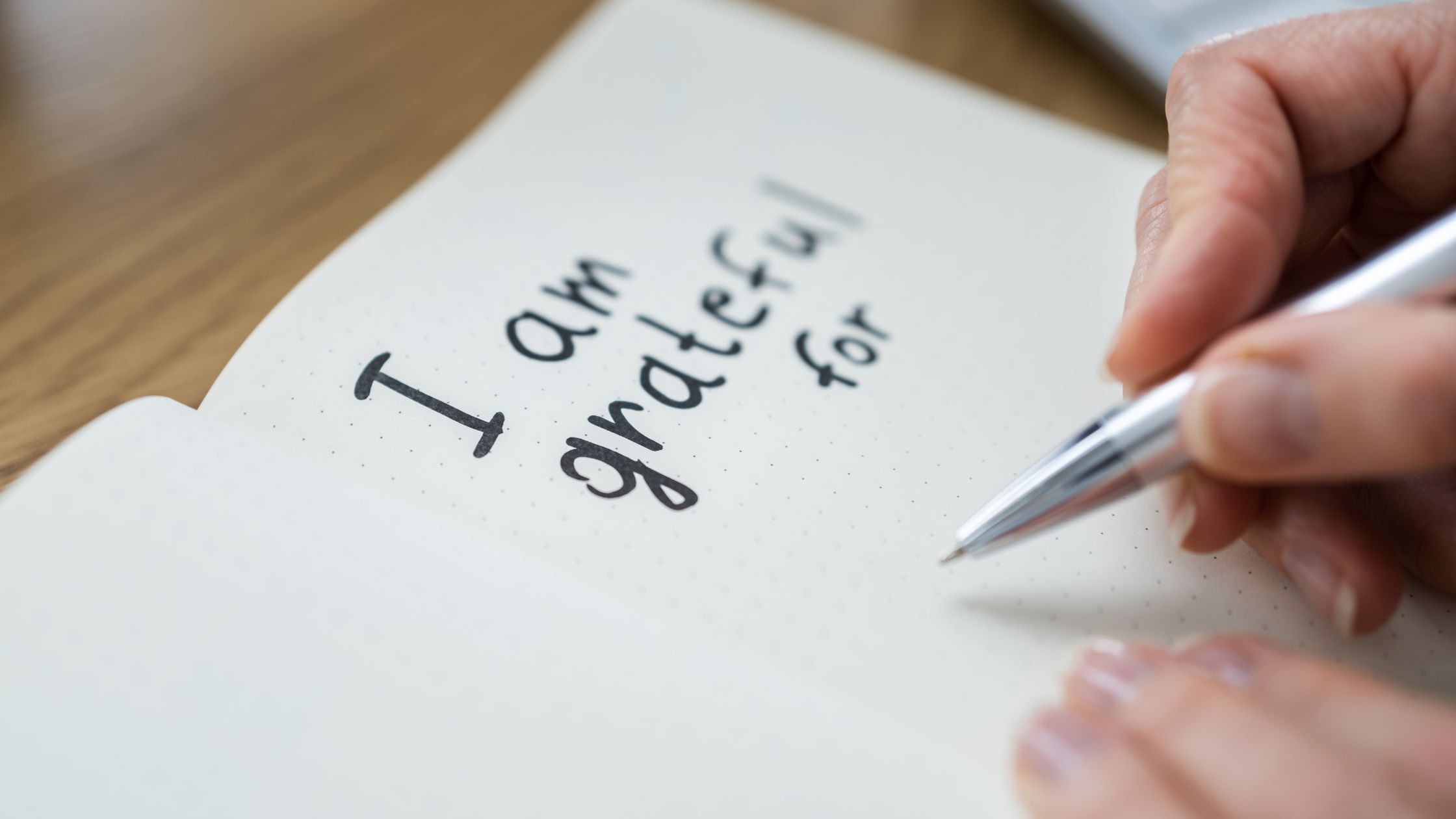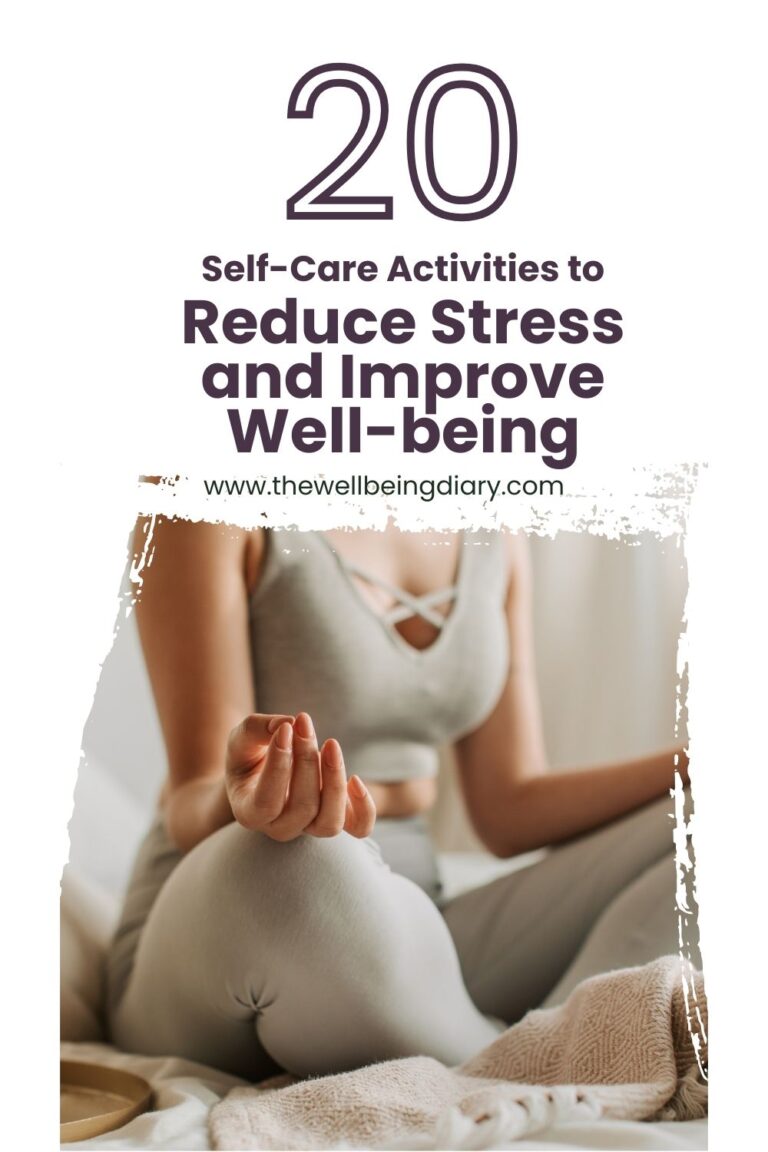20 Self-Care Activities to Reduce Stress and Improve Well-being

Key Takeaways
What are some effective self-care activities for stress relief?
To relieve stress, try these self-care activities:
- Deep Breathing: Use the 4-7-8 technique for relaxation.
- Meditation: Spend 5-10 minutes in mindfulness.
- Journaling: Write thoughts or practice gratitude.
- Exercise: Move your body to boost mood.
- Unplug from Technology: Reduce screen time for mental clarity.
In today’s fast-paced world, stress and burnout are common. However, prioritizing self-care can help you recharge mentally and physically, boosting overall emotional wellness. Whether you’re looking for relaxation, self-reflection, or ways to cultivate healthy habits, these wellness practices will help you reduce stress and bring balance to your life.
1. Practice Deep Breathing
Deep breathing helps regulate the nervous system and encourages relaxation. Try the 4-7-8 breathing technique: inhale for four seconds, hold for seven, and exhale for eight. This method calms the mind, lowers blood pressure, and promotes stress reduction in just a few minutes.
2. Take a Warm Bath
A warm bath infused with Epsom salts (rich in magnesium) can help relax tense muscles and promote a sense of calm. Adding essential oils like lavender or chamomile enhances the pampering experience, soothing both the body and mind.
3. Meditate for Mindfulness
Mindfulness meditation is one of the most effective wellness practices for stress relief. Find a quiet space, close your eyes, and focus on your breath or a calming mantra. Just 5-10 minutes a day can enhance mental clarity, reduce anxiety, and promote emotional wellness.
4. Journal for Self-Reflection
Writing in a journal allows you to process your thoughts and emotions. Try gratitude journaling, where you list three things you’re grateful for each day, or stream-of-consciousness journaling to freely express your feelings and gain deeper self-reflection.
5. Move Your Body
Exercise releases endorphins, the body’s natural feel-good hormones. Whether it’s a yoga session, a dance workout, or a simple walk, regular movement improves both mental recharge and physical health, reducing stress in the long run.
6. Read a Good Book
Getting lost in a compelling book can be an escape from stress. Fiction allows you to unwind, while self-improvement books can provide valuable tools for personal growth and resilience.
7. Get a Massage
Massage therapy relieves tension, improves circulation, and encourages deep relaxation. If a professional massage isn’t an option, use a foam roller or self-massage techniques to relieve stress from your muscles.
8. Listen to Calming Music
Music has a profound effect on our emotions. Classical, instrumental, or binaural beats can help soothe the nervous system and support mental recharge. Try creating a stress relief playlist to unwind after a long day.
9. Spend Time in Nature
Nature has a natural calming effect. Whether it’s a hike, a beach visit, or simply sitting in a park, being outdoors reduces stress and enhances emotional wellness. Studies show that “forest bathing” (spending time among trees) lowers cortisol levels and boosts mood.
10. Unplug from Technology
Constant notifications and social media scrolling can contribute to stress and anxiety. Schedule “tech-free” hours during your day, especially before bedtime, to reduce mental clutter and create space for self-reflection.
11. Try Aromatherapy
Essential oils like lavender, chamomile, and eucalyptus can reduce stress, promote relaxation, and improve sleep. Diffusing them in your room or adding a few drops to your pillow can create a calming atmosphere.
12. Drink Herbal Tea
Certain teas, like chamomile, peppermint, and green tea, have natural calming properties. Replace your afternoon coffee with herbal tea to reduce stress while still feeling refreshed.
13. Practice Gratitude
Shifting your focus to gratitude can instantly improve your mood. Start or end your day by listing things you’re thankful for—big or small. This simple practice rewires the brain for positivity and helps cultivate self-love.
14. Get Enough Sleep
Lack of sleep contributes to stress, anxiety, and burnout. Create a bedtime routine by dimming lights, limiting screen time, and winding down with relaxing activities. Aim for 7-9 hours of quality sleep to fully recharge.
15. Do Something Creative
Engaging in creative activities—whether it’s painting, photography, knitting, or writing—allows you to express emotions, release stress, and practice mindfulness. The process matters more than the result, so focus on enjoying the moment.
16. Engage in Gentle Stretching
Stretching not only increases flexibility but also helps relieve built-up tension. A simple 10-minute stretching routine in the morning or before bed can relax your muscles and promote relaxation.
17. Treat Yourself to a Spa Day
A DIY spa day can be a luxurious self-care experience. Light candles, apply a face mask, do a scalp massage, and soak your feet. Even small pampering routines can bring a sense of indulgence and comfort.
18. Connect with Loved Ones
Strong social connections provide emotional support and improve overall happiness. Whether it’s a heartfelt conversation, a lunch date, or a quick phone call, nurturing relationships helps reduce stress and boost your mood.
19. Laugh More
Laughter reduces stress hormones and releases endorphins. Watch a funny movie, stand-up comedy, or spend time with people who make you laugh. Laughter therapy is an underrated but powerful stress reduction tool.
20. Set Boundaries
Learn to prioritize your time and energy by setting healthy boundaries. Saying “no” to unnecessary stressors and protecting your peace allows you to focus on what truly matters, reinforcing self-love and overall wellness.
Final Thoughts
Self-care is not a luxury—it’s a necessity. Incorporating these best self-care activities for stress relief into your daily or weekly routine will help you feel more balanced, energized, and at peace.
Taking care of yourself isn’t selfish; it’s an investment in your well-being.
FAQ
What are the best self-care activities for stress relief?
Some of the best self-care activities for stress relief include deep breathing, meditation, journaling, exercise, and spending time in nature.
How can I practice self-care daily?
You can practice self-care daily by setting aside time for relaxation, engaging in mindful activities like journaling or meditation, and prioritizing sleep and movement.
What are quick self-care ideas for busy people?
Quick self-care ideas include taking deep breaths, listening to calming music, drinking herbal tea, stretching, or stepping outside for a short walk.
Can self-care help with burnout?
Yes! Self-care activities like setting boundaries, getting enough sleep, and engaging in creative hobbies can reduce burnout and improve emotional well-being.
How does self-care impact mental health?
Self-care supports mental health by reducing stress, promoting relaxation, and fostering positive habits that enhance emotional resilience and overall well-being.
